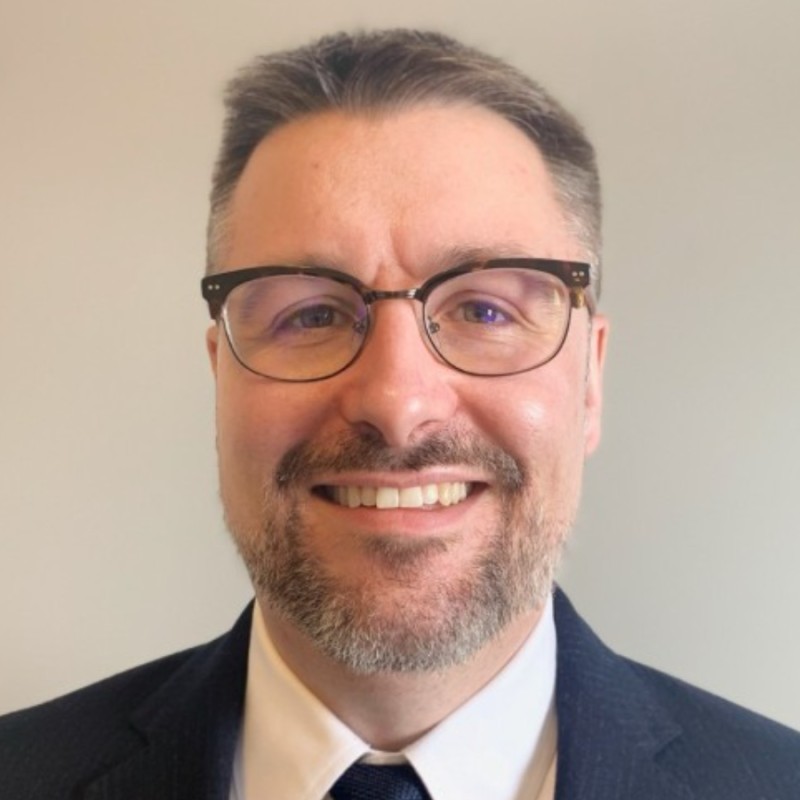Dr. Richard Farrell, President
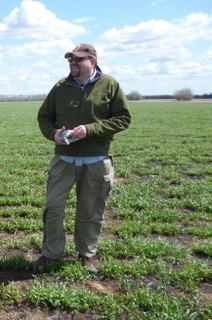
I am a native Rhode Islander and was educated at the University of Rhode Island (B.Sc. in Resource Development with a concentration in Soil Science) and Iowa State University (M.Sc. & Ph.D. in Soil Chemistry). Though I grew up in the city, I have been interested in soil science since I was 13 and a friend of mine jokingly suggested doing a science project on soils and so here I am many years later—an Associate Professor in the Department of Soil Science at the University of Saskatchewan and a Saskatchewan Ministry of Agriculture (SMA) Research Chair in Soils & Environment—still studying what I love at one of the best Soil Science Departments in North America. My research focus is environmental agronomy and addresses the impacts of agricultural management on GHG emissions from integrated agricultural landscapes (i.e., croplands together with associated shelterbelts and wetlands) and the development of advanced fertilizer management strategies. I am co-director of the Prairie Environmental Agronomy Research Laboratory (PEARL) and director of the agricultural Greenhouse Gas Analysis Laboratory (agGAL), which supports research to develop innovative solutions to the problems facing today’s producers by identifying strategies that enhance, maintain, or re-establish agroecosystem capacity and integrity while providing definable environmental benefits; e.g., mitigating nitrous oxide (N2O) emissions and promoting carbon sequestration. Together with my students, I have published 85 peer-reviewed papers and 11 book chapters. I served as a member of the Editorial Board for the Journal of Polymers and the Environment (2004–2014) and as a Review Editor for Frontiers in Terrestrial Microbiology (2013–2022) and am currently a Technical Editor for the Journal of Environmental Quality (responsible for the Greenhouse & Trace Gases and Atmospheric Pollutants section of the journal). I’ve been a member of the CSSS since coming to Saskatchewan, have organized and chaired or co-chaired several sessions and workshops for CSSS annual meetings highlighting the role of agricultural soils in GHG production/mitigation and was a member of the local organizing committee (LOC) for the 2010 and 2019 CSSS meetings in Saskatoon and the international Rhizosphere 5 conference in 2019 in Saskatoon. I was responsible for the design and maintenance of the website for the 2010 CSSS meeting and the Rhizosphere 5 conference. I served two terms as Western Councillor for the CSSS (2018–2021) during which time I was responsible for overseeing the society’s website and continue to serve as an ad hoc member of the Society’s Communications Committee. I am also one of the editors for the open access textbook Digging into Canadian Soils: An Introduction to Soil Science published by the CSSS in 2021. In 2022 I was elected a Fellow of the Canadian Society of Soil Science. The CSSS is an important part of my professional life, and that of my students, and looking forward as CSSS President I will work with Council to enhance graduate student involvement in the Society beyond just the annual meeting experience. Communications is key and I envision the CSSS website becoming a more effective resource for students, and really for anyone seeking science-based solutions to the problems that threaten our soil resources. As well, 2023 marks 15 years since publication of the 2nd edition of Soil Sampling and Methods of Analysis, and it is time to update the book to include the many advances and innovations in soil analysis that are now available. And I would like to see the next edition of Soil Sampling and Methods of Analysis published as open access. The strength of the CSSS is its members and I look forward to working with the membership as I continue my journey in soil science.
Dr. Amanda Diochon, Past President
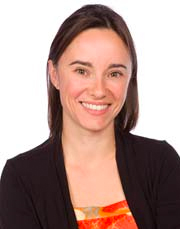
Amanda is an associate professor in the Department of Geology at Lakehead University, where she is also the coordinator of the Water Resource Science program, the director of Lakehead University’s Environmental Laboratory, and lead on the soon to be established Centre for Healthy Ecosystems and Environmentally Conscious Economic Development. I completed my BSc in Biology and Aquatic Resources at St Francis Xavier University, MS in Geography at Northern Illinois University, PhD in Earth Science at Dalhousie University, and a post-doc at Agriculture and Agri-Food Canada in Ottawa before heading to Thunder Bay. I am passionate about soil organic matter and understanding how environmental change impacts the cycling of this important resource in agricultural and forested systems. My group incorporates a variety of techniques to track changes in the soil organic matter pool that can be difficult to detect measuring stocks alone. Recently we’ve been investigating approaches for the conversion of forest to farmland that minimize soil organic matter losses, as well as the diversion of papermill residuals for land application in forests and agricultural fields. Another passion of mine is soil science education and outreach. This passion has been nurtured through my involvement with the CSSS and the Education Committee. As a group we have been examining trends in soil science education in Canada and best practises, and recently published the CSSS led Canadian e-textbook for learners. I am excited to work with members of the CSSS to expand our reach and inspire the next generation of soil scientists to meet the challenges of managing soils in a changing climate.
[
Back to TOP]
Dr. Richard J Heck, President Elect
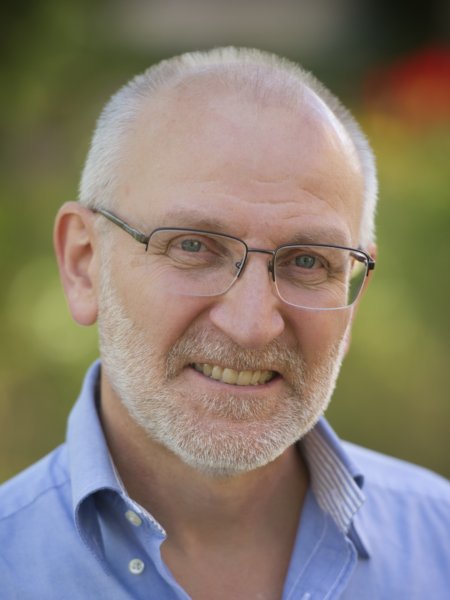
Richard, a 35+-year member of the CSSS, is currently a Professor of Soils and Landscape Processes in the School of Environmental Sciences, of the Ontario Agricultural College, at the University of Guelph. He grew up on a mixed farm in Saskatchewan, to which he still retreats annually to reconnect with its ‘Asquith/Weyburn’ soils. Richard received his B.S.A. (in Agronomy), as well as his M.Sc. and Ph.D. (both in Soil Science) degrees from the University of Saskatchewan. During his post-doctoral appointment, within a CIDA-sponsored project, he was stationed at the Universidade Federal Rural de Pernambuco in Brazil. This eventually led to a four-year term as Visiting Professor of Soil Physical Chemistry, at the same university, where his research and graduate student supervision concentrated on soil salinization. Since 2000, Richard’s research at the UofG has focused mainly on the quantification of soil structure. Having established one of the first x-ray CT facilities for the study of soils, he has introduced numerous students and researchers to the concepts and techniques for the application of high-resolution digital imaging, with associated image processing and analysis. As a Special Visiting Researcher, Richard was also instrumental in establishing a CT facility at the Universidade Federal de Pernambuco in Brazil, as well as in providing local training and guidance for the development of their research programs. In 2022, he co-edited a Springer book entitled X-ray Imaging of the Soil Porous Architecture. Currently, he is developing a multispectral macroscopic imaging system for digitizing petrographic thin sections, including those of the Canadian Soil Thin Section Collection, which he curates. At the landscape level, Richard has been working on the characterization of soil redoximorphism by electromagnetic induction sensing. During his 30+ years as an instructor, initially at the diploma, then at the undergraduate and graduate degree levels, Richard has taught a range of courses, including introductory soils, soil chemistry, soil physical chemistry, land evaluation, land utilization, soil genesis and classification, quantitative pedology, instrumental analysis techniques, as well as remote sensing. He is passionate about taking students into the field, running an annual undergraduate field camp since his arrival in Guelph, and introducing a graduate field course about a decade ago. He has also led several course-based excursions through Brazil, for Canadian students to study tropical soilscapes. Nominated by the CSSS, Richard was an elected member of the Board of the Agricultural Institute of Canada from 2011 to 2018, eventually serving as its Vice-Chair. Between 2014 and 2022, he served two terms as Vice-Chair of Commission 1.1 (Soil Morphology & Micromorphology) of the International Union of Soil Sciences. In 2015, Richard was made a Corresponding Member of the Brazilian Academy of Agricultural Sciences. First elected to the Board of the Ontario Institute of Agrologists in 2021, Richard has served two terms as its President. In 2022, he was elected to a four-year mandate as Chair of the IUSS Division 1 (Soils in Space & Time) and a member of the IUSS Executive Committee. Having led the successful bid of the CSSS to host the 24th World Congress of Soil Science in Canada, Richard continues to Chair the 24WCSS Committee, in preparation for this 2030 event…“The years leading up to the 24th WCSS will bring substantial opportunities for the CSSS, and its members, to further evolve their profile and impact, both nationally and internationally, as well as to leverage associated activities to enhance our capacity to educate and advocate, as well as to research, innovate and implement solutions for the future challenges of soil science in Canada.”
[
Back to TOP]
Lee-Ann Bauman, M.Sc., P.Ag., Secretary
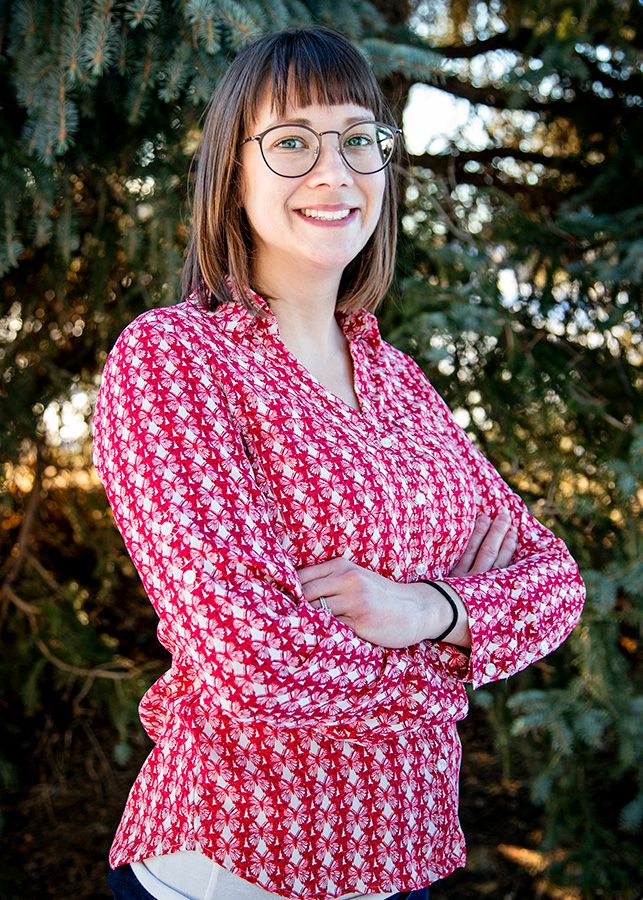
Lee-Ann is a soil scientist in the public sector at the Alberta Energy Regulator where she works with licensees and the public to ensure regulatory compliance under the Environmental Protection and Enhancement act. She uses her knowledge of soil science to determine environmental risk on proposed oil and gas sites, active sites and sites undergoing decommissioning and reclamation activities in addition to performing reviews on pipeline applications and post-construction reclamation assessments. Previously she worked in the private sector as a consultant to assist clients with the management of environmental liability through the completion of various site assessments and regulatory reports. She also completed post-reclamation soil audits in the Athabasca Oil Sands Region, and contributed to soil reclamation research initiatives in the Region in an effort to better understand various soil cover designs and their level of success in the reclaimed landscape. Lee-Ann completed her Bachelor and Master of Science (M.Sc.) degrees at the University of Northern British Columbia in the Natural Resources and Environmental Studies Department. Her M.Sc. thesis was completed through the Hakai Institute under the supervision of Dr. Paul Sanborn and Dr. Barbara Cade-Menun, and was focused on soil genesis, organic phosphorus pools, and forest productivity along an aeolian Holocene chronosequence located on Calvert Island, British Columbia. Prior to pursuing her M.Sc., she performed reclamation research at Alberta Innovates-Technology Futures in Edmonton where she assisted with a variety of projects including the long-term ecological recovery monitoring of reclaimed wellsites in Alberta, carbon monitoring in the Athabasca Oil Sands Region, validation of new technologies and soil amendments as well as a Quality Assurance and Quality Control project that assessed within and between laboratory reproducibility. She is excited to contribute to the Canadian Society of Soil Science and further their work on the dissemination of soil science.
[
Back to TOP]
Dr. Preston Sorenson, Treasurer
Preston Sorenson is currently a Research Associate at the University of Saskatchewan, where he has been conducting research related to predictive soil mapping in the Canadian Prairies since January 2020. Preston has a B.Sc. in Land Use and Environmental Studies from the University of Saskatchewan, a M.Sc. in Soil Science from the University of Alberta, and a Ph.D. in Soil Science from the University of Alberta. His Ph.D. work focused on this use of reflectance and imaging spectroscopy to rapidly determine soil organic carbon and nitrogen concentrations in soil, along with characterizing the spatial distribution of those properties throughout the soil profile. Preston specializes in the use of machine learning and geostatistics to solve complex soil and environmental data analysis challenges. He is a registered member of the Saskatchewan Institute of Agrologists.
[
Back to TOP]
Dr. Henry Chau, Western Councillor
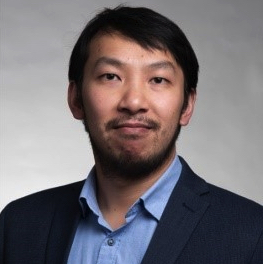
I am a Senior Lecturer in Soil and Environmental Physics in the Department of Soil and Physical Sciences, Faculty of Agriculture and Life Science at Lincoln University, New Zealand. Born and raised in Alix, a small farming community in central Alberta, I became interested in soil science while studying at the University of Alberta for my B.Sc. in biological sciences (Microbiology). Courses in soil sciences and soil microbiology shifted my focus to utilize my microbiology experience in agricultural and environmental contexts to solve global problems. The importance of research and science to the public resonated with me while on a Field Day visit hosted at Agriculture and Agri-Food (AAFC) Canada. I decided to pursue postgraduate studies at the Department of Soil Science at the University of Saskatchewan, where I received my PhD in Soil Physics. My research was aimed at understanding how soil water repellency and fungal hydrophobicity could alter the soil water dynamics in Brunisolic soils. I continued my academic journey to the opposite end of the world when I moved to Lincoln University, in 2014. My current research focus is to advance the understanding of the impacts of land use and management on soil physical and hydraulic properties, processes and related ecosystem functions that are essential for addressing global societal challenges of water and food security, sustainable land management, economic development, weather uncertainty and climate adaptation. I have been a member of CSSS since 2008, and an Associate Editor of the CJSS since 2021. I have regularly attended the annual meeting every year, to keep involved in soil matters in Canada, and to connect the Australasian soil science community to their Canadian counterparts. I am elated to give back to the soil science society by serving as the Western Councillor and look forward to working with the society to meet the needs of the community.
[
Back to TOP]
Dr. Adrian Unc, Eastern Councillor
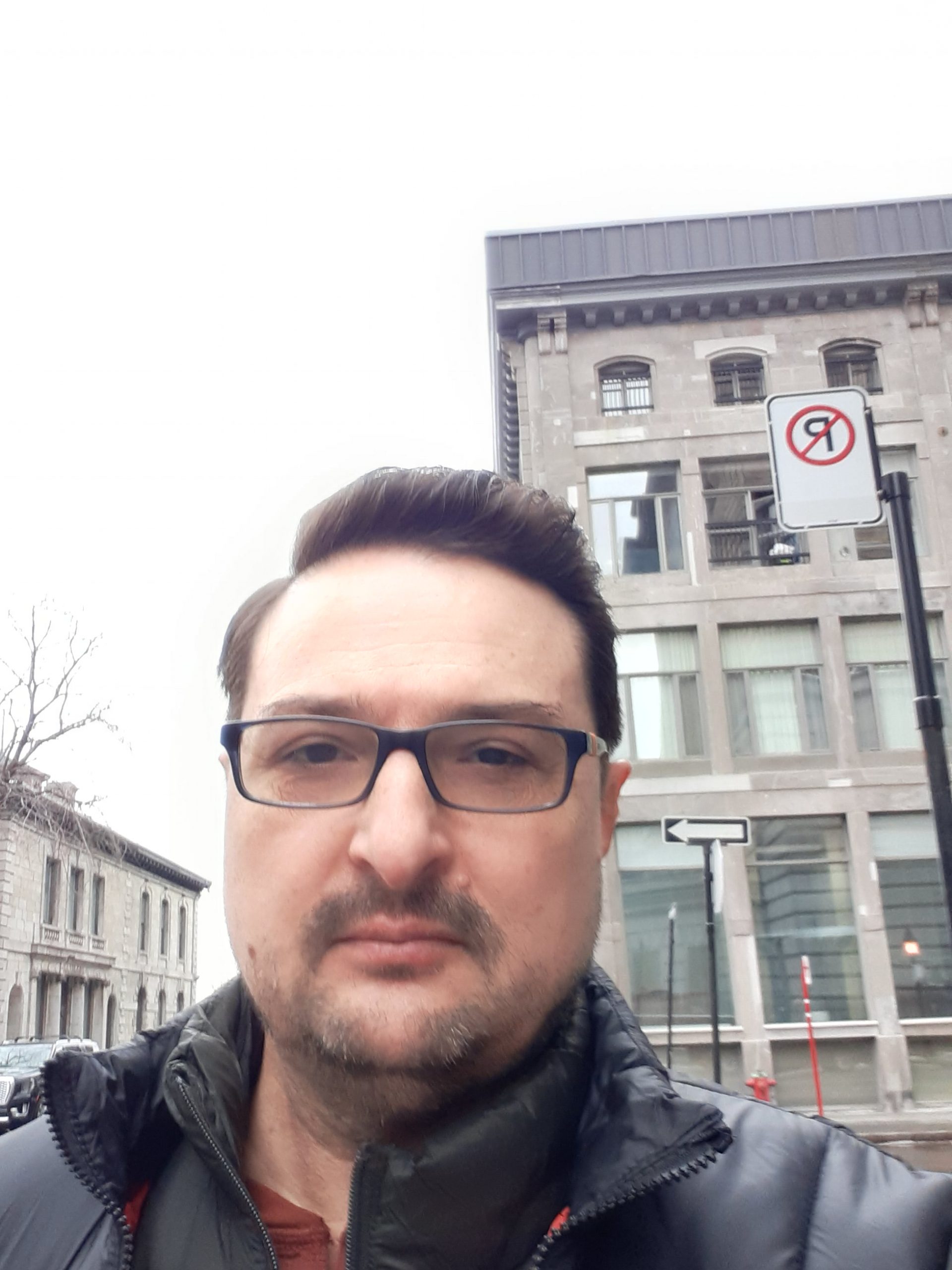
Adrian is a professor in the School of Science and the Environment at the Memorial University of Newfoundland. Here he established the Boreal Ecosystems and Agricultural Science graduate program, the first STEM program at the Grenfell campus of the university and the first agricultural graduate program in Newfoundland. He holds a BSc in Agronomy and Agricultural Engineering from the Banat University of Agricultural Sciences and Veterinary Medicine Timisoara in Romania, MSc and PhD in Soil Science from Guelph University, and was a post-doc at the Faculty of Medicine with the Centre for Research in Environmental Microbiology, University of Ottawa. Before moving to Newfoundland, he was an Assistant and Associate Professor at New Mexico State University, and a Senior Cheney Fellow (School of Earth and Environment) and a Visiting Research Fellow (Geography) at University of Leeds. He has interests in understanding the role of soil management on agricultural sustainability and also on resource utilisation for bioproducts. Related to the later he was a co-investigator with the National Alliance for Advanced Biofuels and Bioproducts, the first and largest algal for bio-products program in US, and is a founding member of the Canadian Algae Research and Technology Centre. He carried out significant work in soil contaminant microbiology. His current interests are in the area of agricultural development on marginal soils with a strong focus on the environmental sustainability of cold-climate agriculture to support food-security in the North. He continues to be involved in arid land soil health research, both in the arid US Southwest and the Middle-East. He has a strong interest in understanding how the history of agriculture can inform on the current renaissance of pre-industrial agricultural concepts and methodologies, as regenerative, ecological, biological, organic and similar types of agricultural systems. Currently he is a Deputy Editor with the Soil Use and Management (a Journal of the British Soil Science Society), and an associate editor of Algal Research.
[
Back to TOP]
Dr. M Anne Naeth, CJSS Editor-in-Chief
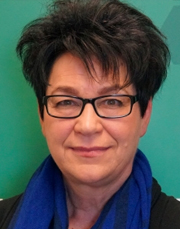
Anne Naeth PAg, PBiol, FCSSS, FSTLHE is a Professor of Land Reclamation and Restoration Ecology in the Faculty of Agricultural, Life and Environmental Sciences, University of Alberta. She is Director of the Energy Systems Signature Area, Director of Future Energy Systems Research Program, Director of the Land Reclamation International Graduate School (LRIGS), and a Vargo Distinguished Teaching Chair. She served as Associate Dean (Academic) and Associate Dean (Research and Graduate Studies). She worked in government and industry and served on the Alberta Environmental Appeals Board for 14 years. She served on executives of numerous professional organizations, editorial boards and expert advisory boards, including president and various other positions with CSSS. Anne holds a BSc in biology; a double MSc (soil science, plant science) and PhD in land reclamation. Her land reclamation research program focuses on soils and plants, addressing soil-plant community development; plant species selection and establishment; impacts of non native species on native plant communities; bioengineering; native plants, their mycorrhizae and microbial communities; soil remediation, bioremediation and phytoremediation; soil amendments, particularly waste products such as compost, manure, sewage sludge and biosolids; and development of anthroposols. Her extensively published research led to policy changes that benefit the environment and industry and development of a new soil order for human built soils. She has supervised over 75 graduate students and mentored dozens of post doctoral fellows and undergraduate research students. Anne has received numerous awards recognizing her outstanding scholarship, teaching and community service, including the CLRA Noranda Land Reclamation Award, Mentors of the Millenium, Alumni Award of Excellence, Killam Professorship and Distinguished Agrologist, Rutherford Award of Excellence for Undergraduate Teaching, 18 Faculty Teacher of the Year Awards, the prestigious 3M Fellowship (top 10 teachers in Canada), and the University Cup (highest award from University of Alberta). She received the first University of Alberta NSERC CREATE grant to establish LRIGS, the first school of its kind in the world for multi-disciplinary training and professional development of land reclamation students.
[
Back to TOP]
Blake Weiseth, Graduate Student Representative
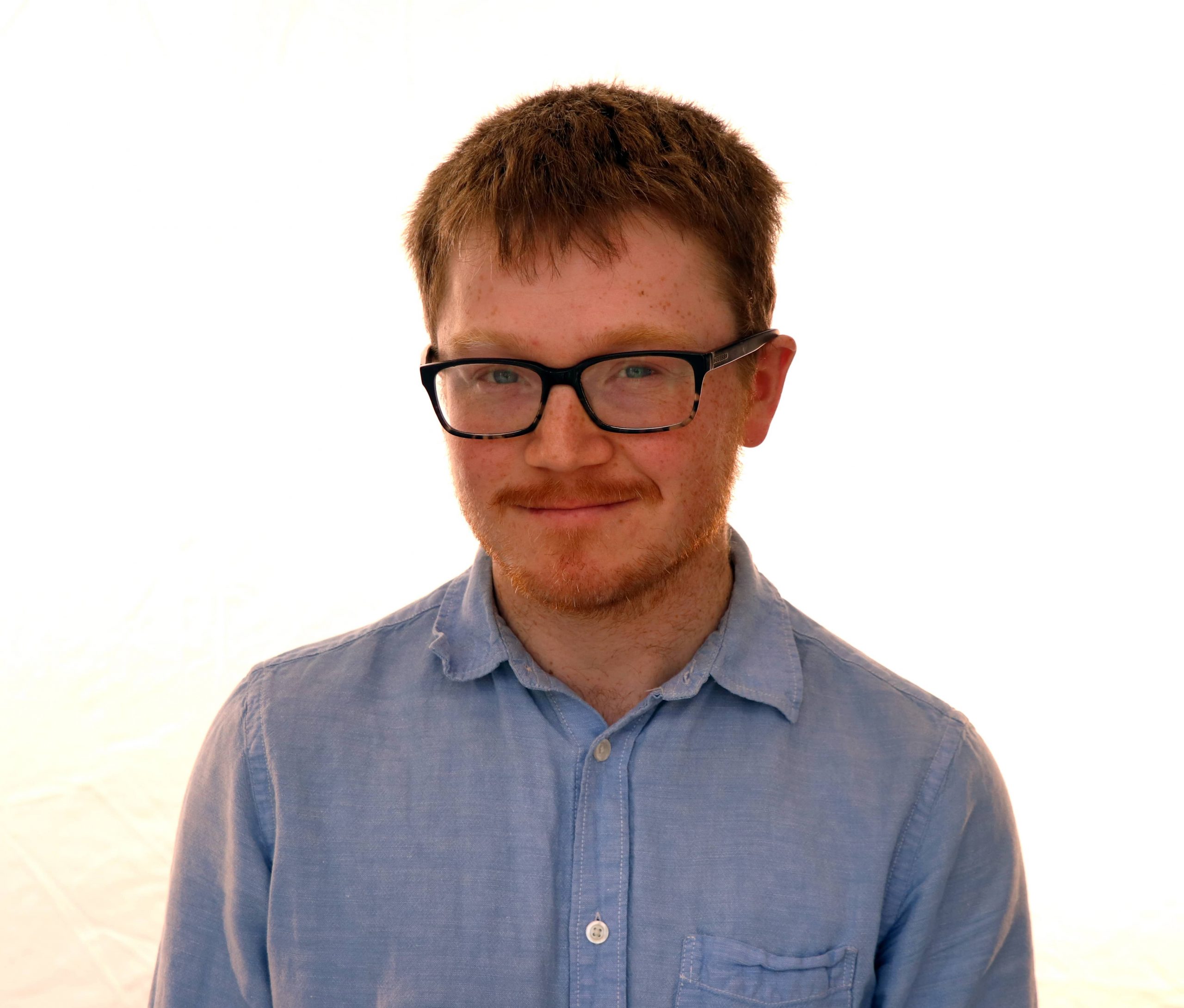
I grew up on a mixed grain and livestock farm near Shaunavon, Saskatchewan. My educational background includes bachelor’s and master’s degrees in Soil Science from the University of Saskatchewan. Currently, I am pursuing my PhD at the same institution under the co-supervision of Drs. Jeff Schoenau and Jane Elliott. I am also registered as a Professional Agrologist (PAg) with the Saskatchewan Institute of Agrologists. My research focuses on the critical soil-water nexus, evaluating the agronomic and environmental performance of 4R Nutrient Stewardship practices in achieving their goal of optimizing nutrient use efficiency by crops while limiting phosphorus and nitrogen losses in runoff water. Recognizing the role of hydrology in driving nutrient transport, I am also interested in evaluating the effectiveness of 4R Nutrient Stewardship practices across varying landscape positions and soil properties. While studying, I am also employed as the Applied Research Lead at the Glacier FarmMedia Discovery Farm, near Langham, Saskatchewan, which is an applied research and demonstration farm. I welcome the opportunity to serve on this council, with particular focus on representing the interests of my fellow graduate student colleagues and to facilitate collaboration and dialogue between academia and private industry.
[
Back to TOP]




